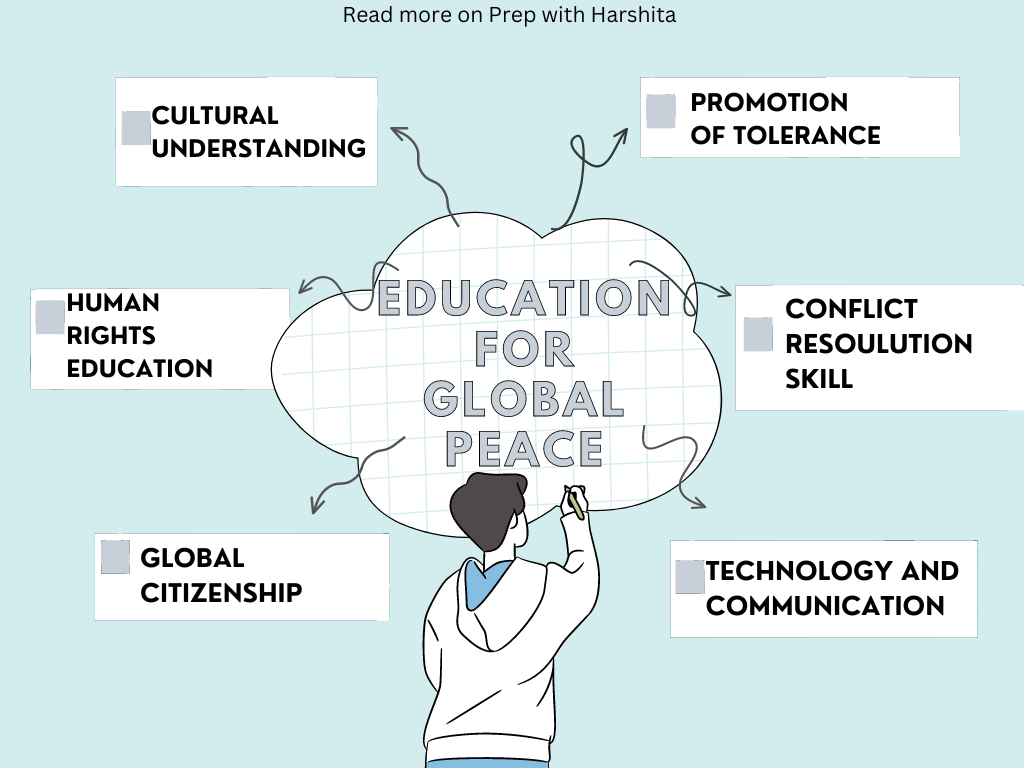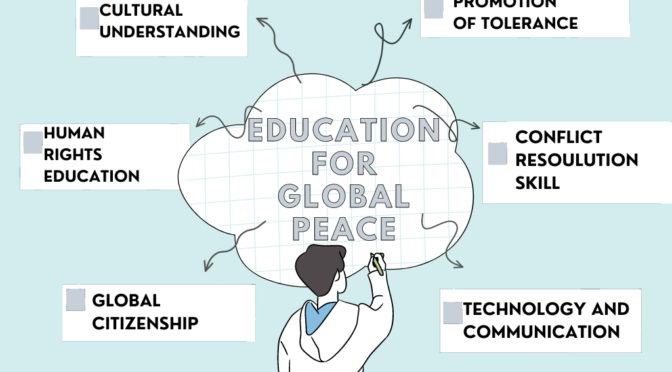Education plays a crucial role in fostering global peace and understanding. Here are several ways in which education contributes to promoting peace on a global scale:
Let’s Discuss a few ways:
- Cultural Understanding: Education helps individuals gain a better understanding of different cultures, traditions, and perspectives. By learning about diverse societies and their histories, people develop empathy and respect for others’ ways of life. This understanding is helpful in peaceful coexistence.
- Promotion of Tolerance: Inclusive education teaches tolerance and acceptance of diversity. When individuals learn about different religions, ethnicities, and backgrounds, it reduces prejudice and discrimination, creating an environment where people are more open-minded and accepting of one another.
- Conflict Resolution Skills: Education can provide individuals with the skills necessary for conflict resolution. Teaching negotiation, communication, and diplomacy in educational settings equips people to address conflicts peacefully, whether at a personal, community, or international level.
- Human Rights Education: Integrating human rights education into curricula helps individuals understand the importance of respecting each other’s rights. It empowers people to stand against injustice and promotes a sense of responsibility for creating a world where everyone can live with dignity and equality.
- Global Citizenship: Education can cultivate a sense of global citizenship, emphasizing the interconnectedness of the world. Encouraging individuals to see themselves as part of a larger global community promotes a shared responsibility for addressing global challenges, including poverty, inequality, and environmental issues.
- Media Literacy: Educating individuals about media literacy helps them critically analyze information and avoid misinformation. This skill is crucial for preventing the spread of propaganda and stereotypes, which can contribute to tensions and conflicts.
- Environmental Sustainability: Education about environmental issues fosters an understanding of the importance of sustainable practices. As environmental challenges often transcend borders, a global commitment to sustainability can contribute to peaceful cooperation among nations.
- Technology and Communication: Education in technology and communication enhances global connectivity. Access to information and the ability to communicate across borders can help in collaboration, and exchange of ideas, contributing to mutual understanding and cooperation.
Also Read: Formation of Plan Action

Also Visit: Prep with Harshita

